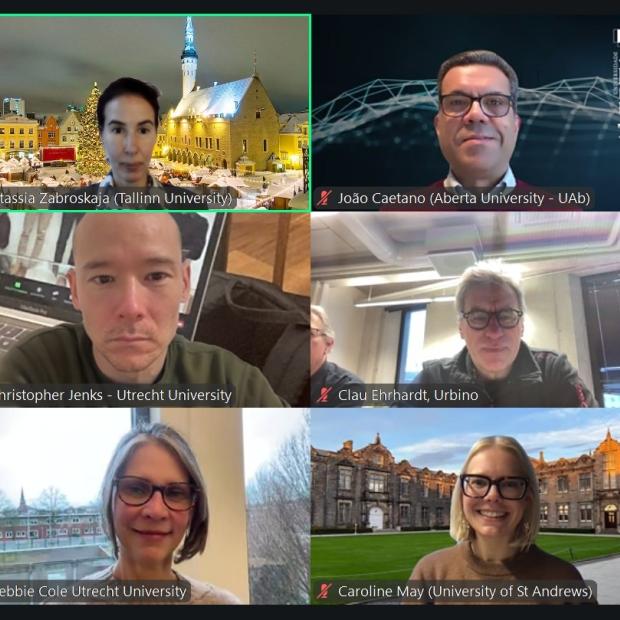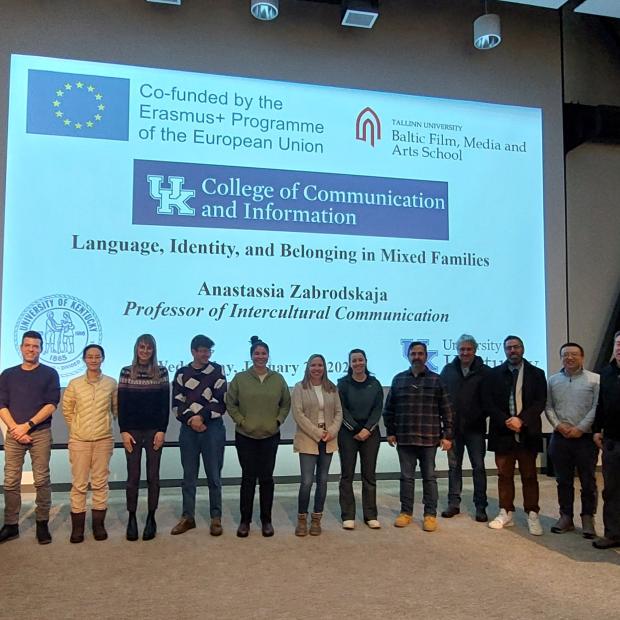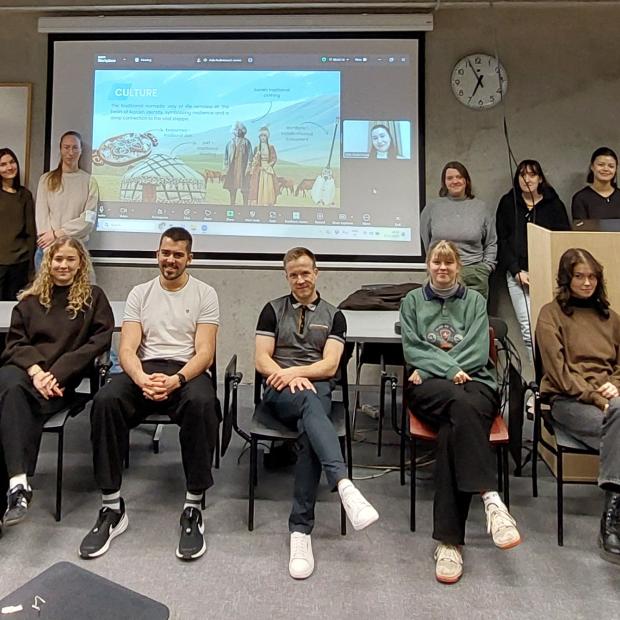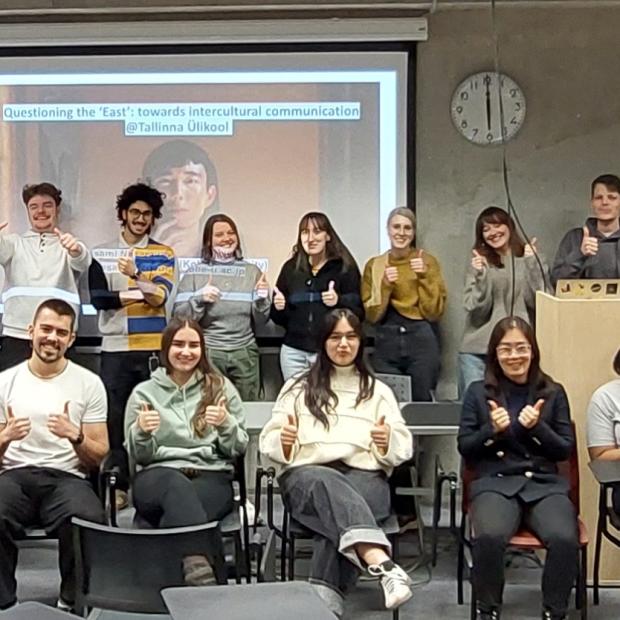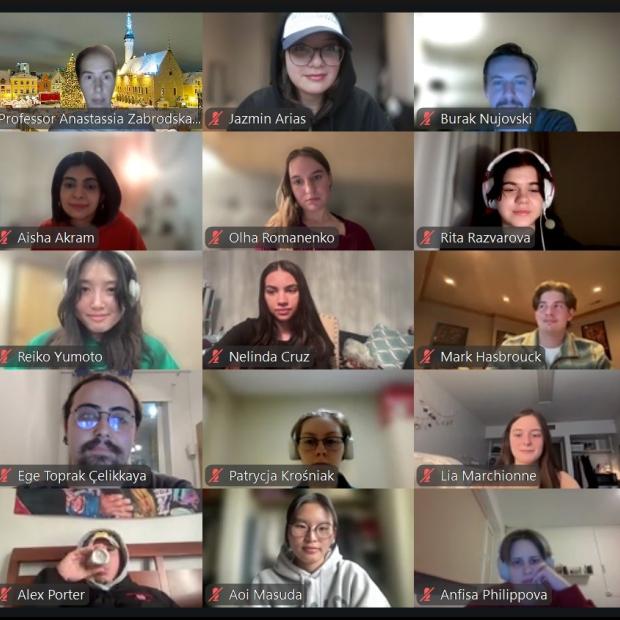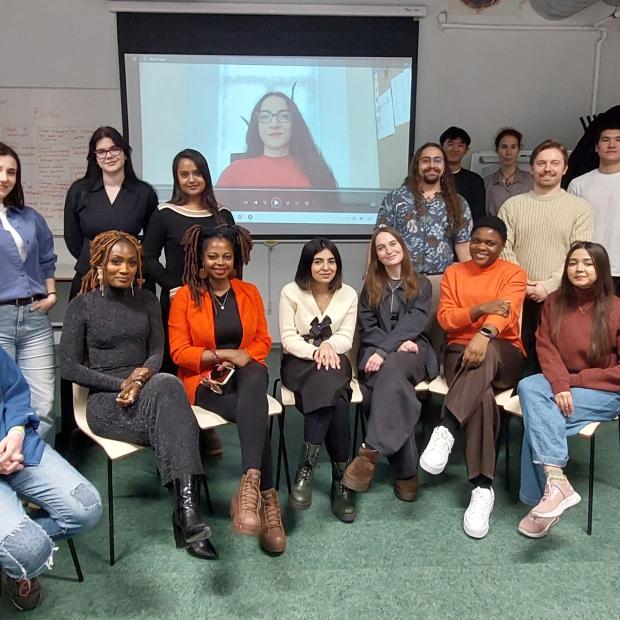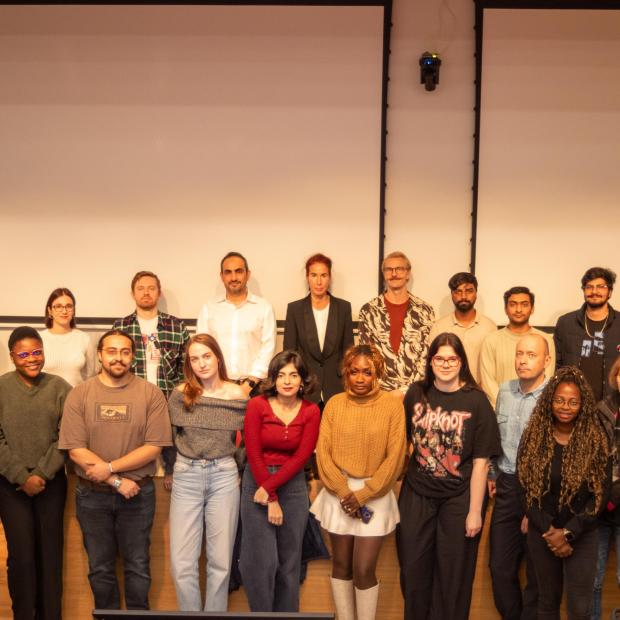Professor Ryoko Hayashi's Inspiring Erasmus Lectures at Tallinn University
Tallinn University Baltic Film, Media and Arts School is excited to host Professor Ryoko Hayashi from Kobe University, Japan, for a series of engaging guest lectures this week.
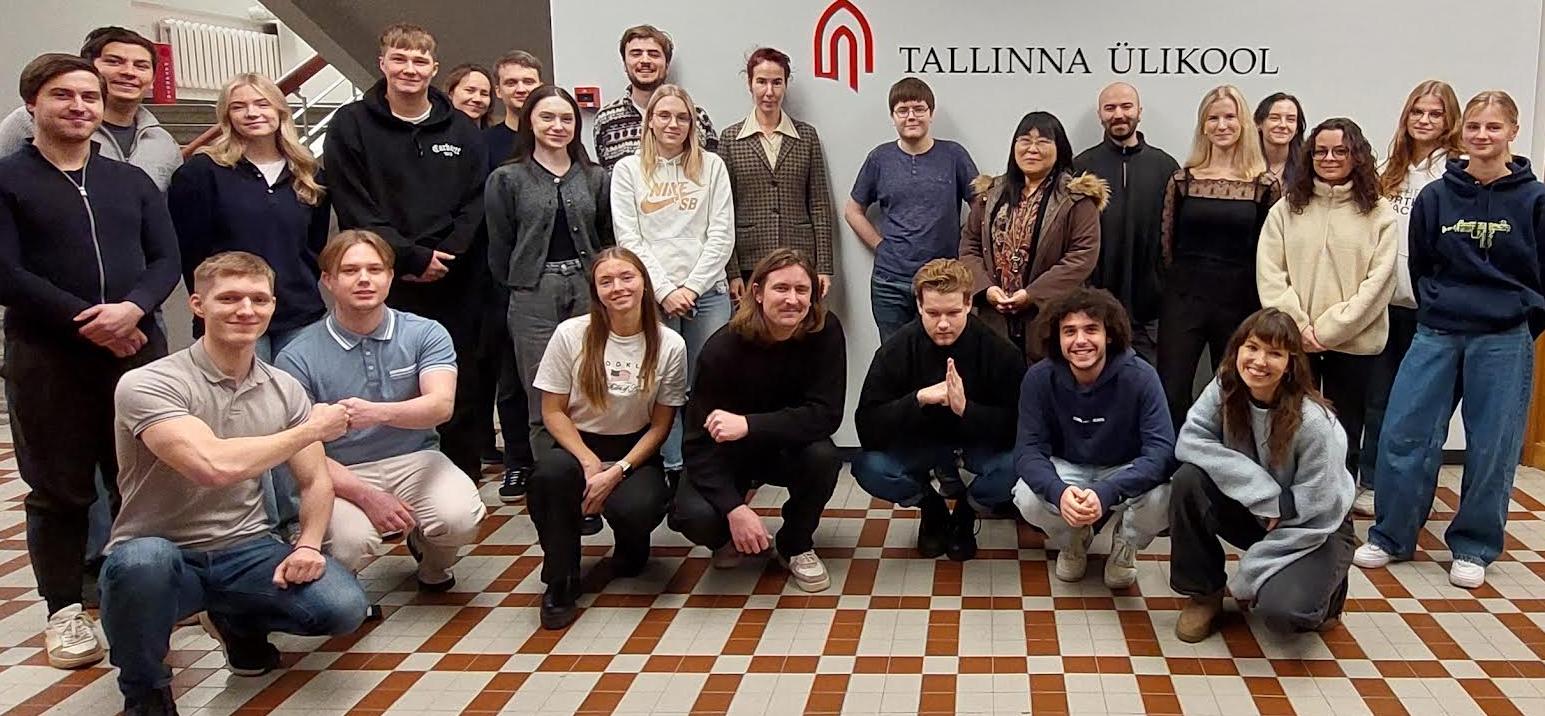
Professor Hayashi holds advanced degrees in linguistics and medical science and has extensive experience in language teaching and neuropsychological research. A seasoned expert in Japanese, English, German, and Italian, her research focuses on language acquisition, language contact, and intercultural communication.
Professor Hayashi shared her insights into language contact, migration, and intercultural communication. Her lecture in the course "KOI7068.FK Internationalization, Multiculturalism, and the Challenges for Business Management" explored the dynamics of language contact, its effects on migration, and the interplay between linguistic diversity and education. Professor Hayashi explained how language contact occurs, the linguistic outcomes of migration, and the application of the plurilingual approach from the Common European Framework of Reference for Languages (CEFR) in Japan. Throughout the lecture, she incorporated real-world examples and case studies from Japan and beyond, illustrating how theoretical concepts translate into practice. Her insights sparked discussions on the implications of language policies for businesses operating in multicultural environments, underlining the importance of linguistic and cultural sensitivity in international management. The session offered students a comprehensive understanding of the intersections between language, migration, education, and business, equipping them with valuable perspectives to navigate the challenges of globalized, multicultural workplaces.
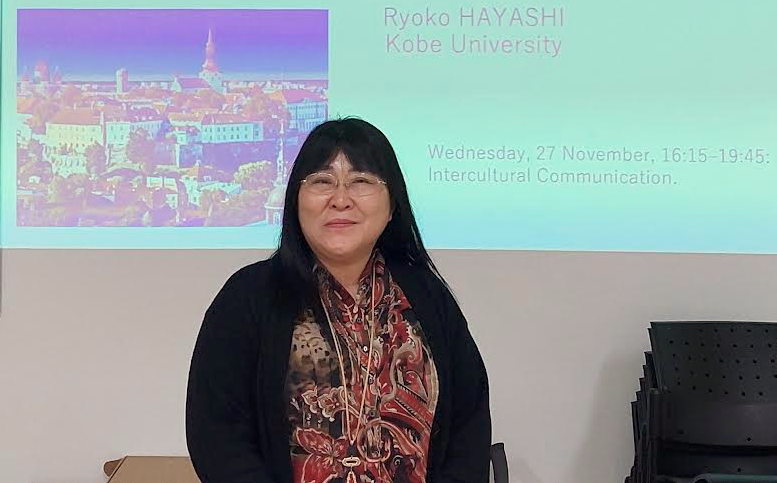
Another session during the course "KOK6063.FK Intercultural Communication" introduced foundational concepts of intercultural communication, focusing on how speech styles vary across cultures. Using examples from Japanese language and culture, Professor Hayashi discussed concepts such as self-disclosure, high-context and low-context cultures, and humor in cross-cultural contexts. During the lecture, students engaged in a series of activities designed to explore cultural nuances and interpersonal communication. They examined how self-introductions vary across cultures, identifying verbal and non-verbal cues that convey respect, politeness, and individuality. They discussed the importance of cultural context in shaping expectations and practiced crafting self-introductions tailored to different cultural settings. Students also analyzed ethnic jokes from their own cultural backgrounds, discussing the stereotypes they reinforce and the social dynamics they reveal. This exercise fostered critical thinking about humor’s dual role as a bonding mechanism and a potential perpetuator of bias. Through humor and cinematic storytelling, students explored cultural differences in comedic timing, delivery, and speech styles. They analyzed Yasujirō Ozu’s portrayal of subtle communication and nuanced relationships, contrasting these elements with humor from their own cultures.
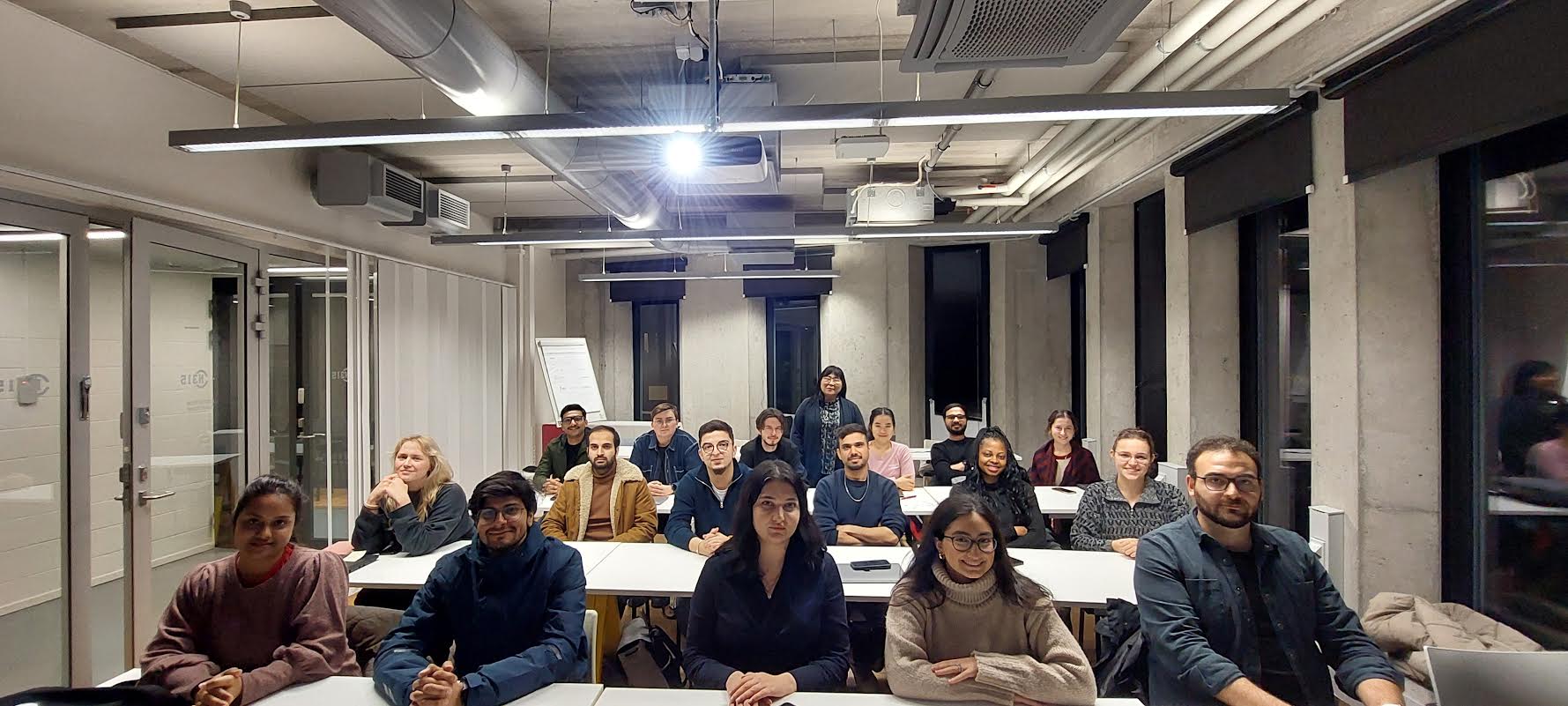
The lectures offered unique perspectives and interactive discussions, enriching students' understanding of linguistic and cultural phenomena in a globalized world. Students praised Professor Hayashi for her engaging teaching style and the opportunity to connect theoretical concepts with practical, real-world applications. "Her insights into language contact and cultural communication were incredibly eye-opening. I feel I now have a deeper understanding of how language shapes and is shaped by our interactions," shared one participant from the Master’s Programme in Communication Management.
Tallinn University Baltic Film, Media and Arts School extends heartfelt thanks to Professor Ryoko Hayashi for her invaluable contributions and hopes to welcome her again in the future.
The text is authored by Dr. Anastassia Zabrodskaja, who is a Professor of Intercultural Communication, the Head of the Master’s Program in Communication Management at Tallinn University Baltic Film, Media and Arts School, and the Executive Director of the European Masters in Intercultural Communication (EMICC) teaching and research network.

